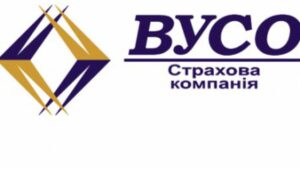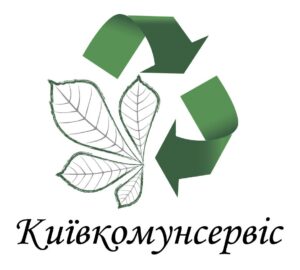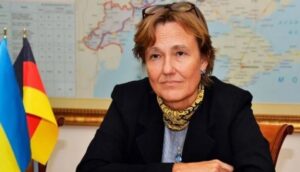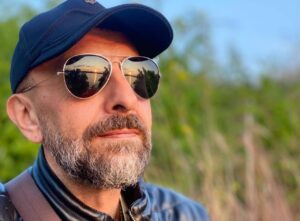
Alviva Group, owner of Ukraine’s leading bakery products company Kyivkhlib LLC, harvested 5,419 tons of its first winter wheat and sunflower crop in its pilot season for its agricultural division in 2025, the group’s press service reported on Facebook.
It is recalled that in 2024, it began operations in the Kyiv and Chernihiv regions, where it has 4,000 hectares of agricultural land.
“5,419 tons is the total volume of the first harvest (winter wheat and sunflower). The total area of land that has been restored and recultivated is 1,300 hectares. 204 hectares have been demined and 760 hectares have been cleared of trees to return the land to economic use,” Alviva Group shared its achievements.
Next season, 2025–2026, the company plans to expand its acreage by 26% to 3,510 hectares through demining and recultivation. In addition, Alviva Group’s agricultural division intends to diversify its crop structure and add rye, corn, and rapeseed to its crop rotation.
Alviva Group is an international group of companies in the food technology and services sector. It produces bakery products under the brands Kyivkhlib, Tarta, Tendi, Norden Brod, British Sandwich, Mr Snex, Naturavo, Honey Moon, and Kyivmlyn.
The group exports to 30 countries around the world. Its land bank covers more than 4,000 hectares in the Kyiv and Chernihiv regions.

OKKO Group of Companies has installed 64 solar power plants (SPPs) on the roofs of gasoline filling stations (FFS) during 2025, its website reported on Wednesday.
“As of the end of 2025, already 265 ”OKKO“ are equipped with SES installed on the roof of filling stations (…) Thanks to the use of solar modules, last year the network of ‘OKKO’ covered 8.4% of the needs of its filling stations in electricity,” the company said.
Now the total capacity of the installed SES reaches 6 MW. The volume of investments in rooftop stations since 2021, when the company started developing the solar project, has reached more than $3 million, with most of the invested funds already returned in the form of savings in electricity costs, the group emphasized.
In 2026, the network plans to install SES at more than 40 more of its gas stations, investing another $0.5 million in their installation and startup, which is expected to increase the share of solar energy in the gas station network’s energy consumption to 9.5%.
“Our goal is to install SES at all filling stations of ”OKKO”, where there is such a technical possibility. According to our estimates, this is more than 350 filling stations in all regions of Ukraine. During the period of active generation such SES can provide from 15% to 55% of the daily electricity needs of filling stations“, – said the head of the energy efficient solutions sector of ”OKKO” Vitaliy Gut.
As reported with reference to the CEO of OKKO Group holding, co-founder of GORO Mountain Resort Vasyl Danilyak, the group plans to commission its first Ivanichi 147 MW WPP in Volyn region in the first quarter of 2026. According to him, OKKO has already started with a new wind power project in the neighborhood of the first one – the Zaturintsy VES 192 MW.
OKKO Group unites more than 10 diversified businesses in the sphere of production, trade, construction, insurance, service and other services. The flagship company of the group is Galnaftogaz Concern, which operates one of the largest gasoline networks in Ukraine under the brand name OKKO with almost 400 gasoline filling complexes.
The founder and ultimate beneficiary of the group is Vitaliy Antonov.

On January 6, Lviv municipal utility enterprise “Lvivvodokanal” announced its intention to conclude a contract of compulsory insurance of civil liability of owners of land vehicles (MTPL) with IC “VUSO” (Kiev).
As reported in the system of electronic procurement Prozorro, the company’s price offer amounted to UAH 1.161 million against UAH 1.796 million expected cost of purchasing services.
Insurance company Kraїna with a proposal of UAH 1.177 mln and SG TAS with UAH 1.4 mln also took part in the tender.

KP “Kyivkommunservice” on January 8 announced its intention to conclude a contract with IC ‘Kraїna’ for compulsory insurance of civil liability of owners of land vehicles (OSAGO), and with IC “Ultra Alliance” for voluntary insurance of civil liability (VLI), according to the system of electronic public procurement Prozorro.
The price offer of IC “Kraina”, the only participant of the tender, amounted to UAH 300.9 thousand at an expected cost of UAH 364.5 thousand.
The price offer of IC “Ultra Alliance” has amounted to UAH 31,980 th., at the expected cost of UAH 60,840 th.
The company was also the only participant of the tender.

Anka Feldhusen, German ambassador to Ukraine from July 2019 to July 2023, will take office as business ombudsman on February 1, 2026, replacing former Canadian ambassador to Ukraine Roman Waschuk, who was approved for the position by the Cabinet of Ministers of Ukraine on December 9, 2021, the Business Ombudsman Council announced on Facebook on Thursday.
The Cabinet of Ministers approved the decision of the Supervisory Board of the Business Ombudsman Council of November 25, 2025, to appoint Feldhusen by Order No. 9 of January 7, which is published on the government portal.
“I could not imagine a better successor than Anka Feldhusen. Her personal involvement in Ukraine since the mid-1990s, her comprehensive knowledge of government and business structures, and her empathy for the daily military (and other) challenges of Ukrainian life: I can only wish her and the renowned team of the Business Ombudsman Council continued success!” Vashchuk wrote on Facebook on Thursday.
The Business Ombudsman Council recalled that Feldhusen has considerable experience in diplomatic work in Ukraine, because before her appointment as ambassador in 2010-2015, she was deputy head of mission in Kyiv, and in 1994-1997 she headed the embassy’s press and protocol department.
In total, she has more than 30 years of experience working in the German Federal Foreign Office, and from 2016 to 2019, she served as head of department in the Administration of the German Federal President. From 2015 to 2016, she headed the regional department for East Africa, the Horn of Africa, and Sudan at the German Foreign Ministry. From 2002 to 2005, she was deputy head of mission in the Cuban capital, Havana.
Feldhusen speaks German (native), English, Ukrainian, French, Spanish, and Russian.
“It is a great honor for me to return to Ukraine as an advocate for the rights of entrepreneurs, whose resilience and determination support the country’s economy and defense capabilities in these difficult times. I believe that working to eliminate barriers and unfair practices on the part of state authorities is the basis for business development and attracting investors, despite the ongoing full-scale war,” the future business ombudsman commented on her appointment.
The Business Ombudsman Council (BOC) was established in accordance with the Memorandum of Understanding on the Ukrainian Anti-Corruption Initiative, signed in 2014 by the Ukrainian government, five business associations, the EBRD, and the OECD. Since 2015, the BOC has been operating as an independent permanent advisory and consultative body to the Cabinet of Ministers, with a team of more than 30 experts.
The council’s mission is to promote a transparent business environment by reviewing complaints from companies about violations or corruption by officials. The BOC, headed by the Business Ombudsman, acts as a neutral, extrajudicial mechanism and promotes constructive dialogue between business and government.
The BOC is funded by a Multilateral Donor Account managed by the European Bank for Reconstruction and Development (EBRD). Donors include Austria, Denmark, the EU, Finland, France, Germany, Italy, Japan, Latvia, the Netherlands, Norway, Poland, Sweden, Switzerland, the United Kingdom, and the United States.
Before Waschuk, the business ombudsman was former Warsaw Mayor Marcin Świecicki, appointed in 2019, and the first to hold this position in 2014 was Algirdas Šemeta, former Minister of Finance of Lithuania, European Commissioner for Budget and Financial Planning (2009-2010) and for taxation, customs union, audit, and anti-fraud (2010-2014).
As previously reported by Alexei Dolgikh, managing partner of Boyden Ukraine, a company specializing in the search for senior executives and selected by the EBRD to conduct the selection of a new business ombudsman, there were no Ukrainians among the candidates. “There were zero Ukrainian candidates for business ombudsman. They don’t believe in it,” Dolgikh said at the International Forum of Corporate Directors, held by the Professional Association of Corporate Governance (PACG) in early December 2025 in Kyiv.
Dolgikh told Interfax-Ukraine that three strong candidates had been selected, from which the Business Ombudsman Council made its final choice.
ANKA FELDHUSEN, Business Ombudsman, Former ambassador, GERMANY

A farewell ceremony for renowned journalist Denis Bezlyudko, who headed the Ukrainian News and RBC-Ukraine news agencies and recently passed away unexpectedly at the age of 50, will be held on Friday afternoon in Kyiv.
“The funeral service for Denis Bezlyudko will be held on Friday, January 9, at 3:00 p.m. at 16 Baikova Street, crematorium, white administrative building, VIP hall,” his wife Lesya Kazachynska wrote on her Facebook page.
Bezlyudko worked for 15 years at the Ukrainian News information agency and headed it for many years, then he was also the editor-in-chief of RBC-Ukraine, and in 2021, together with Oleksandr Kramarenko and Maksim Urakin, he headed the board of the Presszvanie journalism competition.
The editorial staff mourns his passing and expresses its deepest condolences to Denis’s family.